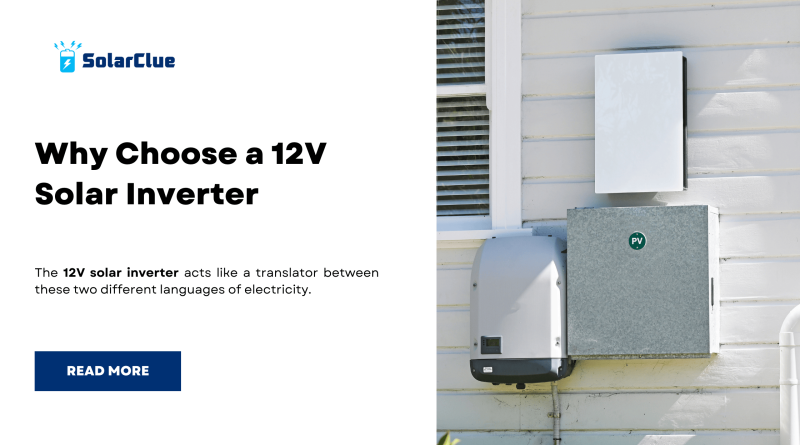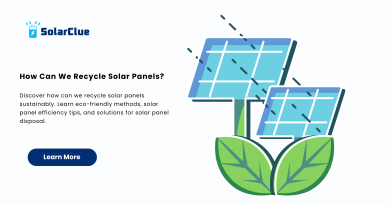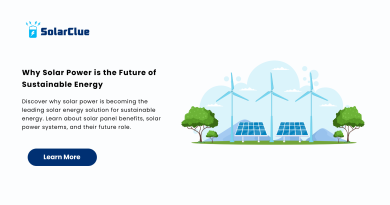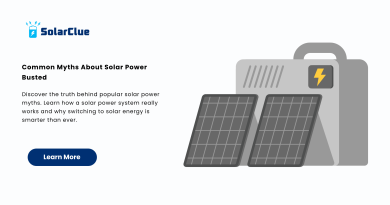12V Solar Inverter
If you’ve ever thought about using solar power for your home or outdoor adventures, you’ve probably come across the term “12V solar inverter.” But what exactly is it, and why should you care? Don’t worry if you’re feeling a bit lost—this guide will walk you through the basics of 12V solar inverters, their benefits, and how they can fit into your life. By the end, you’ll have a clear understanding of what they are and how they work. Let’s dive in!
Table of Contents
What Is a 12V Solar Inverter?
At its core, a 12V solar inverter is a device that converts the direct current (DC) electricity generated by your solar panels into alternating current (AC) electricity. Why does this matter? Most of our household appliances and devices run on AC power. So, without this conversion, you wouldn’t be able to use the electricity your solar panels produce for everyday needs.
Think of it this way: solar panels generate electricity in the form of DC, but the standard household power outlets deliver AC. The 12V solar inverter acts like a translator between these two different languages of electricity.
Why Choose a 12V Solar Inverter?
There are several reasons why a 12V solar inverter might be the perfect choice for your solar setup. Here are some key benefits:
- Cost-Effective: These inverters are generally more affordable than higher voltage models. If you’re just starting with solar energy or working on a smaller scale, this can be a great option.
- Simplicity: They’re easier to install and use, making them ideal for beginners or those who want a straightforward solar power system.
- Suitable for Small Systems: If you have a small solar setup or need power for a specific application (like a camper or a small cabin), a 12V inverter can handle these needs efficiently.
- Portability: Many 12V inverters are compact and lightweight, which is perfect if you need to move your solar system around or use it in different locations.
How Does a 12V Solar Inverter Work?
Here’s a step-by-step look at how a 12V solar inverter operates:
- Solar Panel Generation: Your solar panels collect sunlight and convert it into DC electricity. This is the raw power that you need to process.
- Power Conversion: The inverter takes this DC electricity and changes it into AC electricity. This conversion allows you to use it with your home appliances and devices.
- Power Output: The AC electricity is then output through the inverter to your electrical system, ready to power your lights, gadgets, and more.
To help you visualize how a this inverter fits into your solar power system, here’s a simple table comparing it to other types of inverters:
| Feature | 12V Solar Inverter | 24V Solar Inverter | 48V Solar Inverter |
|---|---|---|---|
| Voltage | 12V | 24V | 48V |
| Ideal For | Small systems, RVs, boats | Medium systems, off-grid homes | Larger systems, commercial setups |
| Cost | Lower | Moderate | Higher |
| Efficiency | Good | Better | Best |
| Installation | Easy | Moderate | Complex |
Choosing the Right 12V Solar Inverter
When selecting a 12V solar inverter, there are several factors to consider:
- Power Rating: Check the wattage of the inverter. Make sure it can handle the total power output of your solar panels and the power needs of your appliances.
- Efficiency: Look for an inverter with high efficiency. This means less power loss during the conversion process, so more of the electricity generated by your solar panels goes to use.
- Durability: If you plan to use the inverter in outdoor or harsh environments, make sure it’s built to withstand various weather conditions.
- Features: Some inverters come with additional features like USB ports, remote control, or battery management systems. Consider what extras might be useful for your setup.
- Brand and Warranty: Choose a reputable brand and check the warranty terms. A good warranty can provide peace of mind and protection for your investment.
Installation Tips for a 12V Solar Inverter
Installing a this can seem daunting, but with a bit of preparation, it’s manageable. Here are some tips to help you get started:
- Read the Manual: Before beginning installation, thoroughly read the inverter’s manual. This will give you a good understanding of the specific requirements and steps for your model.
- Safety First: Ensure all power sources are disconnected before you start. Safety should always be your top priority when working with electrical systems.
- Choose the Right Location: Install the inverter in a well-ventilated area that is protected from direct sunlight and moisture. Overheating or exposure to elements can affect its performance.
- Connect the Wiring: Follow the manufacturer’s instructions for connecting the solar panel wires to the inverter and the inverter to your battery or electrical system.
- Test the System: Once everything is connected, test the system to ensure it’s working correctly. Check that the inverter is properly converting DC to AC and that your appliances are running smoothly.
Maintaining Your 12V Solar Inverter
Maintaining your inverter is essential for ensuring its longevity and efficiency. Here’s how you can keep it in good shape:
- Regular Checks: Periodically inspect the inverter for any signs of damage or wear. Look for loose connections, corrosion, or other issues that might affect performance.
- Cleanliness: Keep the inverter clean and free from dust or debris. This helps prevent overheating and maintains optimal efficiency.
- Firmware Updates: Some inverters come with firmware that can be updated. Check for updates regularly to ensure you have the latest features and improvements.
- Professional Servicing: If you encounter any issues or if the inverter is not functioning as expected, seek professional assistance. Trying to fix it yourself might void the warranty or cause further damage.
Conclusion
So, there you have it—a comprehensive overview of 12V solar inverters! Whether you’re outfitting a tiny home, a camper, or just exploring the world of solar energy, understanding how these devices work and how to choose the right one can make a big difference. Remember, a 12V solar inverter is a crucial piece of your solar power system, converting the electricity generated by your panels into usable power for your everyday needs. With the right choice and proper maintenance, you’ll be well on your way to enjoying the benefits of solar energy.
Visit SolarClue® to see the best Solar Inverters. SolarClue® actively sells solar energy products at discounts of up to 50% on its online marketplace.
FAQs
1. What size 12V solar inverter do I need?
It depends on your power requirements. Check the wattage of your solar panels and the total wattage of the appliances you plan to use. Choose an inverter that can handle the combined load.
2. Can I use a 12V inverter with a 24V solar panel system?
No, a 12V inverter is designed for 12V systems. For a 24V solar panel system, you’ll need a 24V inverter to match the voltage.
3. How long does a 12V solar inverter last?
With proper maintenance, a good-quality 12V solar inverter can last between 5 to 10 years. Regular checks and servicing can help extend its lifespan.
4. Do I need a special battery for a 12V solar inverter?
While you need a battery that matches the inverter’s voltage (12V in this case), it’s important to choose a high-quality battery with adequate capacity for your needs.
5. Can I install a 12V solar inverter myself?
Yes, but make sure to follow the manufacturer’s instructions carefully and prioritize safety. If you’re unsure or uncomfortable with the installation process, consider hiring a professional.




